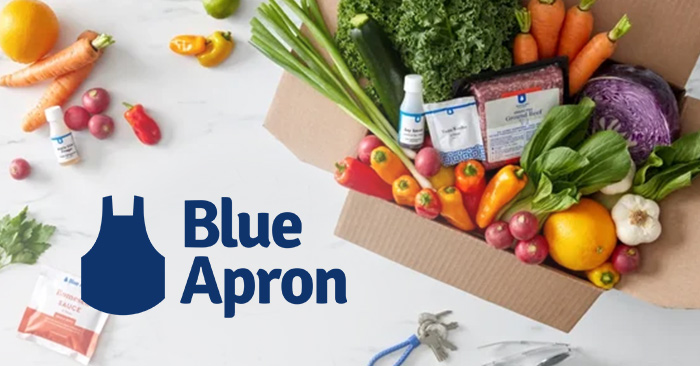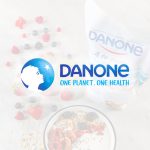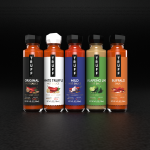News Roundup: Ynsect Expands U.S. Capabilities; Blue Apron Provides Funding Update

Ynsect To Expand U.S. Mealworm Production And Team Up With Ardent Mills
French insect protein production company Ÿnsect announced it will open additional mealworm production sites in the U.S. throughout 2023 as it explores synergies with flour milling and ingredient company Ardent Mills. The announcement follows the unveiling of the company’s first stateside facility in March located in Nebraska.
The company operates as an ingredient supplier and processor and raises Buffalo and Molitor mealworms to be converted into “high-value, sustainable ingredients to feed animals, plants and humans,” according to a press release.
“Ÿnsect aims to help contribute to reinventing the global food system, while also focusing on sustainability,” said Antoine Hubert, CEO and co-founder of Ÿnsect, in a press release. “We are excited to examine potential opportunities with the North America leader in flour milling. This exploration marks the start of potential collaborations between two key players within the global food industry.”
With three operational production sites around the world, Ÿnsect has filed for market approval to begin using its flagship protein concentrate in pet food. As it sets its sights on human food, Ÿnsect is expanding to all continents and working to establish relationships with wheat producers.
“We see many synergies with Ÿnsect — as we both strive to transform the way the world is nourished,” said Angie Goldberg, chief growth officer at Ardent Mills, in a press release. “We are excited to be exploring potential sustainable food and ingredient opportunities with Ÿnsect, a company that has developed a unique expertise in insect-based ingredient production.”
The company said it also has adopted a circular economy model for its vertical mealworm farms in order to limit carbon emissions, water use and the facilities’ impact on biodiversity as well as to ensure compliance with the Paris COP21 agreements.

Blue Apron Secured First $1M Payment Of $56M Private Placement
Publicly-traded meal kit delivery company Blue Apron has secured $1 million of the $56.5 million private placement obligation from affiliates of lead shareholder Joseph Sanberg. The company originally expected the funds in August, but those payments had been delayed numerous times by Sanberg without disclosing an explanation.
On its Q3 earnings call in November, Blue Apron president and CEO Linda Findley said the company would breach its minimum liquidity covenant if the cash was not received by the end of the month. The company also rescinded its full-year guidance due to the financing challenge.
In exchange for the $1 million payment, Blue Apron will issue 176,991 shares of Class A common stock at a price of $5.65 per share. Sanberg and his affiliates, which include investment firm RJB Partners LLC and three nonprofits, still plan to purchase their remaining obligation of $55.5 million at $5.65 per share per the placement agreement, according to a press release.
The company has also announced it will cut its staff by 10% in order to reduce costs amid its increasing financial challenges; as of 2021, the company had approximately 1,988 employees. Those cuts would result in approximately $1.2 million in employee expenses, primarily severance payments. While the layoffs will use up its recent capital infusion, the company said in a statement that the headcount change would result in $50 million in expense reductions in 2023.
Blue Apron said Sanberg and his affiliates acknowledge the obligation to pay the remaining $55.5 million and the company will continue to discuss the transaction with Sanberg. However in the meantime, Blue Apron is working with its team of financial advisors to assess its options.

Mad Capital Raises $4M To Finance Regenerative Ag Transitions
Specialty finance company Mad Capital announced it has raised $4 million to provide “equitable and flexible” capital to farmers looking to transition their farms to regenerative practices. The round was led by regenerative agriculture-focused investment firm Trailhead Capital, and saw additional participation from Bonaventure Capital, Homecoming Capital, Impact Assets, One Small Planet, Lacebark Investments, and 18 other firms.
“Our goal is to finance 10 million acres of farmland by 2032,” said Brandon Welch, co-founder of Mad Capital, in a press release. “We are thrilled to have expanded our investor community and now have the resources to continue backing farmers who are transitioning more land to regenerative organic production.”
Through its inaugural fund, made up of debt funds with traditional financing, farmers will be able to access working capital during the standard three year transition period it takes for a farm to reestablish consistent crop yields with the new practices. Mad Capital’s fund draws support from its cohort of over 40 investors. The firm plans to launch a second fund next year with the goal of transitioning 100,000 acres of farmland.

FDA Amends Yogurt Standard Of Identity
The U.S. Food and Drug Administration announced an amendment to its rules regarding the standard identity of yogurt, which was released in March and published in June. The new amendment allows yogurt makers to use all “safe and suitable” sweeteners, including non-nutritive sweeteners. Additionally, the new rule makes the minimal optional fortification of Vitamin D 10% of the Daily Value.
The changes come after dairy industry groups, including the International Dairy Foods Association (IDFA) and Chobani, filed numerous objections to the proposed update with IDFA claiming the new rule was already outdated prior to its publication due to its limitations of milk types and fat inclusions. While neither of these amendments pertain to the objections filed by IDFA and Chobani, the FDA also modified the broad definition and standard of identity (SOI) to allow for the use of fat-containing flavor inclusions in low fat yogurt.

















